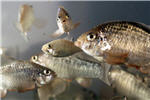Scientists now have a way to more accurately compare how efficiently plants and photovoltaic cells convert sunlight into energy, thanks to findings by a research consortium that included a USDA scientist.
Researchers have found that Marabú – a type of hard wood shrub that has invaded more than 1.5 million hectares of land in Cuba – can be used to produce highly valuable activated carbon.
An international research study published in the journal Atmospheric Environment has found that re-suspended roadside soil dust is a major source of atmospheric lead in old inner city areas.
Four tips to encourage sustainable behavior among employees both in and away from the workplace.
Nitrogen is both an essential nutrient and a pollutant, a byproduct of fossil fuel combustion and a fertilizer that feeds billions, a benefit and a hazard, depending on form, location, and quantity.
High levels of the anti-inflammatory substance diclofenac are released from wastewater plants, according to a study from IVL Swedish Environmental Research Institute and Umeå University that was commissioned by the Swedish Environmental Protection Agency (Swedish EPA).
Indonesia has the potential to realize major reductions in national greenhouse gas emissions from deforestation, and simultaneously earn significant new income for national and regional governments, if policies to Reduce Emissions from Deforestation and forest Degradation (REDD+) are developed with strong and specific economic incentives, said scientists in a new paper published in the leading scientific journal Proceedings of the National Academy of Sciences.
Ambitious solar initiative at Natick, Mass., schools and buildings will reduce energy consumption and provide educational and learning opportunities.
New research has found that individuals and the private sector have an important role to play in the provision of public policies to help society adapt to the impacts of climate change.
Researchers at the Stockholm Environment Institute (SEI) at the University of York (York) have played a key role in a new study that shows that implementing 14 key air pollution control measures could slow the pace of global warming, save millions of lives and boost agricultural production.
Consumers will see added momentum in California’s groundbreaking push for safer alternatives to toxic chemicals in everyday products following the signing of a landmark agreement today by the California Department of Toxic Substances Control and the U.S. Environmental Protection Agency (EPA).
The world’s fastest vegetable oil-fueled vehicle – conceived, built and driven by a team of Boise State University undergraduate students dubbed Greenspeed – will be on display Jan. 26-Feb. 5 at the Washington Auto Show in Washington, D.C.
Preserving diverse plant life will be crucial to buffer the negative effects of climate change and desertification in in the world's drylands, according to a new landmark study.
Fungi may be unexpected allies in our efforts to keep hazardous lead under control.
The tiny U.S. territory in the Caribbean has just 110,000 residents, all the beach, surf, wind and sun you'd ever want. The downside to this oasis is energy prices that are four to five times higher than are paid in the continental United States.

Fish parents can pre-condition their offspring to grow fastest at the temperature they experienced, according to research published in the February 2012 edition of Ecology Letters. This pre-conditioning, known as transgenerational plasticity (TGP), occurs whenever environmental cues experienced by either parent prior to fertilization changes how their offspring respond to the environment.
No less than one third of a car's fuel consumption is spent in overcoming friction. This friction loss has a direct impact on both fuel consumption and emissions. However, new technology can reduce friction from 10 to 80 percent in various components of a car, according to a joint study by VTT Technical Research Centre of Finland and Argonne National Laboratory in the United States.
Just outside Seville, in the desert region of Andalucia, Spain, sits an oasis-like sight: a 100-meter-high pillar surrounded by rows of giant mirrors rippling outward. More than 600 of these mirrors, each the size of half a tennis court, track the sun throughout the day, concentrating its rays on the central tower, where the sun’s heat is converted to electricity — enough to power 6,000 homes.

When most people think of clean technology and renewable energy, they think of the two industry stars: solar and wind power. In addition to their promise to replace fossil fuels, they're iconic and aesthetically pleasing. But other clean technology solutions have the potential to shine and make equal, if not greater, contributions to our success in weaning off fossil fuels. One of the most promising of these solutions is biogas.
More than two million dollars will help public and non-profit groups restore and protect high priority wetlands and other natural resources across Maine.